- Overview
- Specializations
- Online Adult Gerontology – Primary Care Nurse Practitioner (AGPCNP) Program
- Adult Gerontology Acute Care Nurse Practitioner (AGACNP)
- Online Pediatric Nurse Practitioner (PNP) Program
- Online Family Nurse Practitioner (FNP)
- Online Psychiatric Mental Health Nurse Practitioner Program (PMHNP)
- Online Women’s Health Nurse Practitioner Program (WHNP)
- Program Details
- Careers
- Curriculum
- Admission Requirements
- University Details
- Faculty
- FAQs
- Resources
- Tuition and Fees
Online Pediatric Nurse Practitioner (PNP) Program
Overview
In nursing, three letters on your name tag can make a world of difference. Regis College’s online Pediatric Nurse Practitioner (PNP) program, part of the Master of Science in Nursing (MSN), can do more than help you establish your reputation as an expert in health care; it can help you master every aspect of pediatric patient care.
The U.S. Census Bureau estimates that by 2030 there will be 75.7 million children in the U.S., while the American Association of Nurse Practitioners (AANP) reports that only about 3% of nurse practitioners (NPs) are certified as PNPs , creating a critical shortage. Our online MSN PNP program is designed to help future advanced practice nurses enhance their knowledge, hone their skills, and meet the demand for advanced care for children and their families — all without interrupting their career.
You may be eligible for a one-time Rise at Regis credit, valued at $1,025, if you start your journey this summer. There’s a 6-credit enrollment requirement.
Calendar
Credits: 39-63
Courses: 19
Duration: 26-38 months
Application Deadline:
March 30, 2026
Upcoming Start Date:
May 4, 2026
Why Choose Regis for Your Online PNP Program?





Benefits of an Online Pediatric Nurse Practitioner Program
In as little as 26 months, students in the online MSN PNP program at Regis College can earn their degree and prepare for advanced pediatric nursing roles.
The Pediatric Nurse Practitioner program prioritizes flexibility, allowing you to complete your coursework online while meeting clinical requirements in your area — an ideal arrangement for nursing professionals with busy lives.
As part of our inclusive approach to nursing education, we also offer three entry points to the online PNP program, allowing us to meet learners where they are in their academic journey:
- Associate Degree in Nursing to MSN
- Non-Nursing Bachelor’s to MSN
- Bachelor of Science in Nursing to MSN
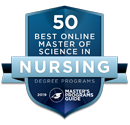

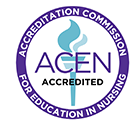

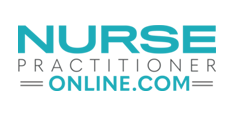
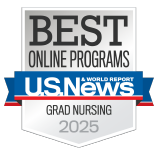
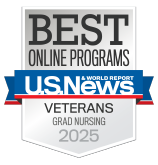
What Can You Do with an Online PNP Degree?
Treating children requires PNPs to be especially observant, as children are not always able to effectively communicate their health issues. PNPs interact with family members more than any other caregiving discipline and perform a wide range of duties, including:
- Diagnosing, treating, and managing pediatric illnesses
- Evaluating childhood growth patterns
- Designing home care plans for families of children with special needs
- Providing caregiver education about conditions and development
Where Do Pediatric Nurse Practitioners Work?
Like all nurse practitioners, pediatric nurse practitioners are in high demand due to changes in health care law, rising standards in primary care, and the need to replace retiring nurses. That means pediatric nurse degree holders can pursue a wealth of opportunities and take their expertise to a variety of work settings, including:
- Hospital Outpatient Clinics
- Outpatient Pediatric Specialty Clinics
- Primary Care (school-based clinics, health departments, community clinics, and private primary care practices)
- Pediatric Primary Care Mental Health
- Physician Offices
- Universities
What Is the Typical Pediatric Nurse Practitioner Salary?
Due to their expertise and the high demand for their services, pediatric nurse practitioners can earn competitive salaries.
The median annual salary for a pediatric nurse practitioner was approximately $96,300 in March 2023, according to Payscale. Several factors, such as setting and level of experience, can affect individual salaries.
Pediatric Nurse Practitioner Job Outlook
Nurse practitioners benefit from a strong job outlook. Fueled by growing demand for primary and preventive care, employment of nurse practitioners is projected to grow by 46% from 2021 to 2031, according to the U.S. Bureau of Labor Statistics (BLS). That translates into more than 112,000 new nurse practitioner jobs.
Additionally, a critical shortage in the number of PNPs, as reported by the National Association of Pediatric Nurse Practitioners, means job opportunities for RNs trained as pediatric NPs will be plentiful.
The online MSN is a virtual extension of our highly regarded on campus program, one of the largest nurse practitioner programs in Massachusetts. The Regis School of Nursing was the first in New England to be designated a Center of Excellence in Nursing Education and is accredited by the Accreditation Council for Education in Nursing.
At Regis, we work directly with active nursing professionals, which means our PNP program incorporates insider perspective on the leadership qualities the field demands to help you build those skills. With our MSN, you can develop important leadership qualities, such as critical thinking, professional and interpersonal communication, effective decision-making, patience, and more.
Pediatric Nurse Practitioner Careers
Work with newborns, infants, toddlers, and adolescents. Provide specialized levels of care.
PNPs are in demand
The American Association of Nurse Practitioners (AANP) reports that as of May 2021, there were 325,000 licensed nurse practitioners in the U.S., however only an estimated 3.2% of NPs are educated and certified as PNPs. With a rising demand for more nurse practitioners and few certified as PNPs, there are insufficient numbers of qualified professionals to address the complex health care needs of the nation’s children.*
According to the U.S. Census Bureau, the number of children living in the U.S. is projected to increase from 74 million to 76.3 million between 2016 and 2030. This increase is expected to further intensify the need for pediatric nurse practitioners.

PNP responsibilities include:
- Assessing growth patterns
- Evaluating developmental milestones and educating parents about normal growth and development
- Eliciting comprehensive health histories
- Ordering and interpreting common laboratory and other diagnostic tests
- Diagnosing and treating common acute illnesses
- Prescribing medication
- Ordering immunizations
- Performing physical examinations, including school physicals, preparticipation sports physicals, and general well-child exams
- Providing anticipatory guidance
Common practice settings include:
- Pediatric offices
- Private caregiving practice groups
- Community hospitals
- Universities
- School-based health centers
- Community youth services
- Surgical theatres
- Pediatric oncology units
- Medically underserved and rural practice settings
Did You Know?*
- The top clinical focus areas for PNPs are pediatrics and pediatrics in subspecialty and primary care.
- The top practice settings for PNPs are hospital outpatient clinics, private group practices and hospital inpatient units.
- The top diagnoses PNPs reported treating were abdominal pain, migraines and otitis media.
*AANP
Ready for Your Next Step?
Online Pediatric Nurse Practitioner Program Curriculum
We’re here to support you. With several levels of student support, no GRE requirements, and a flexible learning environment, we’re breaking down barriers that often prevent bright minds from reaching their full potential in advanced practice.
The online Pediatric Nurse Practitioner program incorporates core MSN classes along with specialized coursework focused on pediatric care. You’ll study advanced health assessment, community-based nursing, and nurse leadership during the core curriculum, which also incorporates clinical hours. The pediatrics curriculum trains aspiring nurse practitioners in the primary care of the child through coursework and clinical seminars. You can also choose from several electives, such as Advanced Psychopharmacology and Care of the Childbearing Woman.
Experience an Expertly Crafted Curriculum Taught by Our Supportive Faculty.
Associate Degree in Nursing to MSN
- Associate Degree in Nursing from a regionally accredited institution and accredited program
- Must complete a college-level statistics course prior to the start of classes
- Active unencumbered RN license
- General education courses may be required, depending on your prior undergraduate coursework
Non-Nursing Bachelor’s to MSN
- Bachelor’s degree from a regionally accredited institution of higher education
- Must complete a college-level statistics course prior to the start of classes
- Active unencumbered RN license
- Associate Degree in Nursing (ADN) required.
- Active Registered Nurse (RN) license required.
- General education courses are not required due to prior bachelor’s degree.
Bachelor of Science in Nursing to MSN
- Bachelor’s degree in nursing from a regionally accredited nursing program
- Must complete a college-level statistics course prior to the start of classes
- Active unencumbered RN license
MSN Core Curriculum Includes:
Pediatrics (PNP)
Electives (select one):
Online Pediatric Nurse Practitioner Program Admission Requirements
Registered Nurse with Associate Degree Entry or Registered Nurse with Non-Nursing Bachelor’s Degree Entry:
- An Associate Degree in Nursing or a non-nursing bachelor’s degree from a regionally accredited institution of higher education
- Minimum 3.0 cumulative GPA preferred
- Active unencumbered RN license
- Complete 15 bridge credit hours with a B or better
- Must complete a college-level statistics course prior to the start of classes
- For RNs with Associate Degree in Nursing, general education courses may be required, depending on student’s prior undergraduate coursework
Registered Nurse with Bachelor of Science in Nursing Degree Entry:
- A Bachelor of Science in Nursing degree from a regionally accredited institution and accredited program
- Minimum 3.0 cumulative GPA preferred
- Active unencumbered RN license
- Must complete a college-level statistics course prior to the start of classes
Online PNP Program Application Requirements
You can begin your application process today. To get started you will need to submit the following:
- Application form
- Official transcripts from all post-secondary institutions
- Proof of active unencumbered RN license
- Current resume
- Statement of purpose
- Two letters of recommendation
About Regis

— Dr. Antoinette Hays RN, Ph.D.
President
Meet Our Faculty

Helen Fox-McCloy, DNP, MSN, CPNP
A Message from Our Online Pediatric Nurse Practitioner Program Director
Frequently Asked Questions
Regis is a leading Catholic university in Greater Boston that has been preparing students for success in an evolving, global world since 1927. Our distinguished and personable faculty prepare nurses with a values-based education integrated with cutting-edge technology and industry-focused curriculum in a wide variety of high-demand and niche specializations.
With a focus on holistic patient-centered care, our online MSN program incorporates insider perspectives on the leadership qualities the field demands to help you build the skills you’ll need to positively affect the field.
NPs have greater control over their professional practice and patient outcomes and may benefit from competitive salaries. Many NPs practice independently in some states with prescriptive authority and are being granted more autonomy nationwide.
Additionally, the health care industry is facing a nationwide shortage of physicians and a rising need for primary care, particularly during the pandemic. Preparing to become an NP helps nurses hone their skills to deliver the best patient care and outcomes in an industry that continually emphasizes the need to attain ongoing and advanced education.
The program allows three points of entry, providing flexibility to our students:
- RN with Associate Degree (ADN to MSN)
- RN with Non-Nursing Bachelor’s Degree (Bachelor’s to MSN)
- RN with Bachelor of Science in Nursing Degree (BSN to MSN)
Depending on your entry point, you may complete your online MSN degree in as few as:
34 months – RN with Associate Degree (ADN to MSN)
34 months – RN with Non-Nursing Bachelor’s Degree (Bachelor’s to MSN)
26 months – RN with Bachelor of Science in Nursing Degree (BSN to MSN)
*Final curriculum will be decided on individual basis, including potential transfer credits
Depending on your entry point and chosen specialization, the number of credits earned through the online MSN degree may vary:
RN with Associate Degree (ADN to MSN): 54-63 credits/PMHNP 57-66 credits
RN with Non-Nursing Bachelor’s Degree (Bachelor’s to MSN): 54-63 credits/PMHNP 57-66 credits
RN with Bachelor of Science in Nursing Degree (BSN to MSN): 39-48 credits/PMHNP 42-51 credits
Cost Per Credit Hour:
- $1025 per credit hour
Application fee: $75
More information about online graduate nursing program tuition and fees, financial aid, payment options, etc., can be found here.
Yes. You may be eligible to transfer up to 9 graduate credits from a regionally accredited institution and accredited program. Three credits each, final grade of a B- or better. Have more questions? Speak with an admissions advisor to learn more.
*Conditions may apply
Online MSN students will typically complete between 664 and 724 hours of clinical practice, depending on your entry point.
Students have an option to space out clinical hours over 2-4 semesters, with approval from the program director.
Regis is proud to offer a 10% tuition discount on fully online programs for employees, members, and spouses of employees of our partner organizations.*
Regis College aims to help military, veterans, and their families to further their education. This is why we offer a 15% tuition discount to all active and reserve military, veterans, and military spouses for our online programs.
We’re also pleased to offer 15% off tuition on online programs to all federal government employees and their spouses, working in any federal department.
A 10% Alumni discount is available to anyone who has graduated from Regis with a degree, excluding those who only received a certificate from Regis.
Two levels of graduate assistantships are offered at Regis, giving online students the unique experience of gaining valuable professional skills while benefiting from financial aid opportunities.**
*Some exceptions apply. The Regis partnership discount cannot be combined with any other discount or scholarship offered by Regis.
**Graduate Assistantships are available to graduate students who are enrolled in a minimum of six credits within their graduate program and maintain a 3.0 GPA.
Online Pediatric Nurse Practitioner Resources

What Is a Pediatric Nurse?
A pediatric nurse is a specialized nurse whose primary focus is the care and treatment of children. If you’re looking for a career helping children, pediatric nursing may be for you.

What Are the Steps to Becoming a Pediatric Nurse Practitioner?
The steps to becoming a pediatric nurse practitioner are straightforward, but the career path requires persistence and a long-term commitment. Learn more!

Pediatric Nurse Job Description: Roles and Responsibilities
Pediatrics is an essential specialization in nursing. Learn more about the pediatric nurse job description, salary, and the work environment for this career.

The Importance of Teamwork and Collaboration in Nursing
Nurses must communicate with relevant professionals about their patients’ treatment plan while also understanding the role of each assigned team member.

What Is the Importance of Evidence-Based Practice in Nursing?
EBP enables nurses to make data-backed solutions that incorporate clinical expertise and current research into the decision-making process.

BSN or MSN: Which Is Right for Me?
The nursing discipline features a full range of educational options, including baccalaureate, graduate, and terminal degrees.
Tuition and Fees
$1025
Per credit hour
$100-$300
Estimated cost of textbooks per course
Ways to Save on Your Online Pediatric Nurse Practitioner Program Tuition

Regis partner employees can receive a discount on their tuition. Find out if your employer is a partner.

Federal government employees as well as active and reserve military and veterans are eligible for a 15% discount on tuition. Find out more.

Regis alumni who have earned a previous degree from Regis are eligible for a 10% discount on tuition. Speak to an advisor for more information.

We are here to support you through the process. Speak to an advisor to learn more.

Earn financial aid helping fellow students while also gaining valuable professional skills. Get more details.
Related Programs

Family Nurse Practitioner

Psychiatric Mental Health Nurse Practitioner

Women’s Health Nurse Practitioner

Adult Gerontology – Primary Care Nurse Practitioner

Adult Gerontology – Acute Care Nurse Practitioner

Online BSN to Doctor of Nursing Practice
